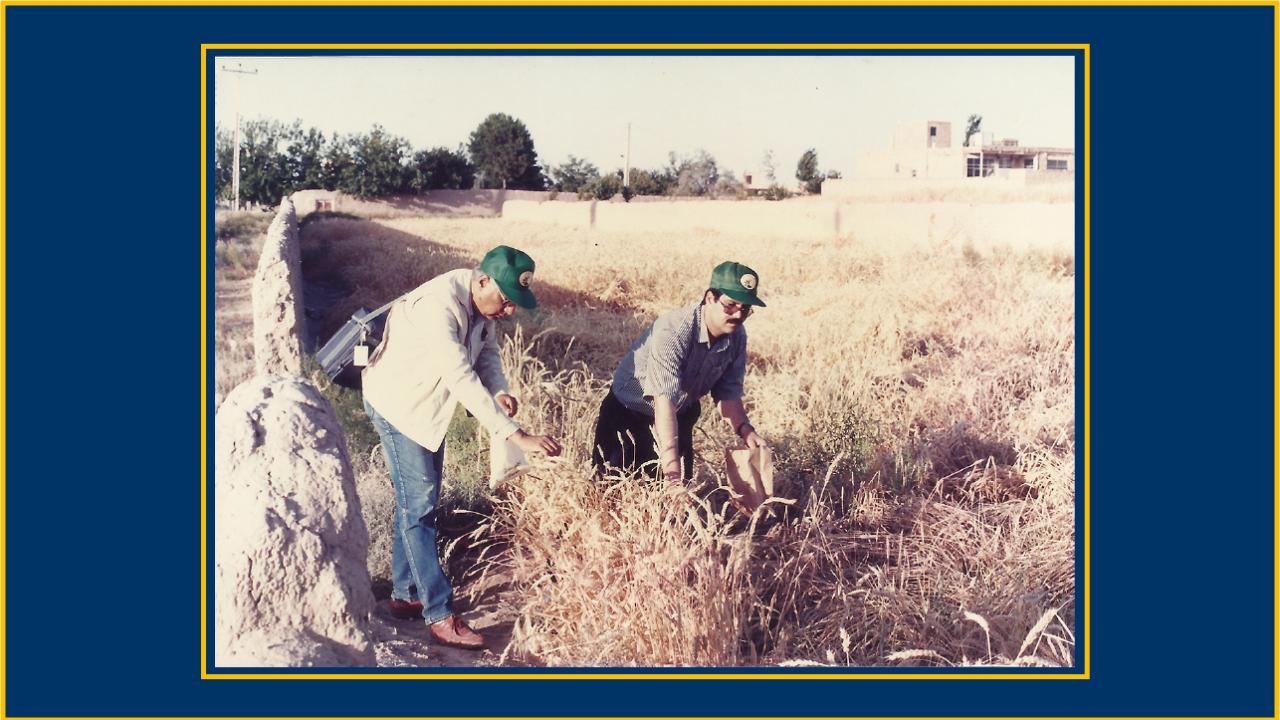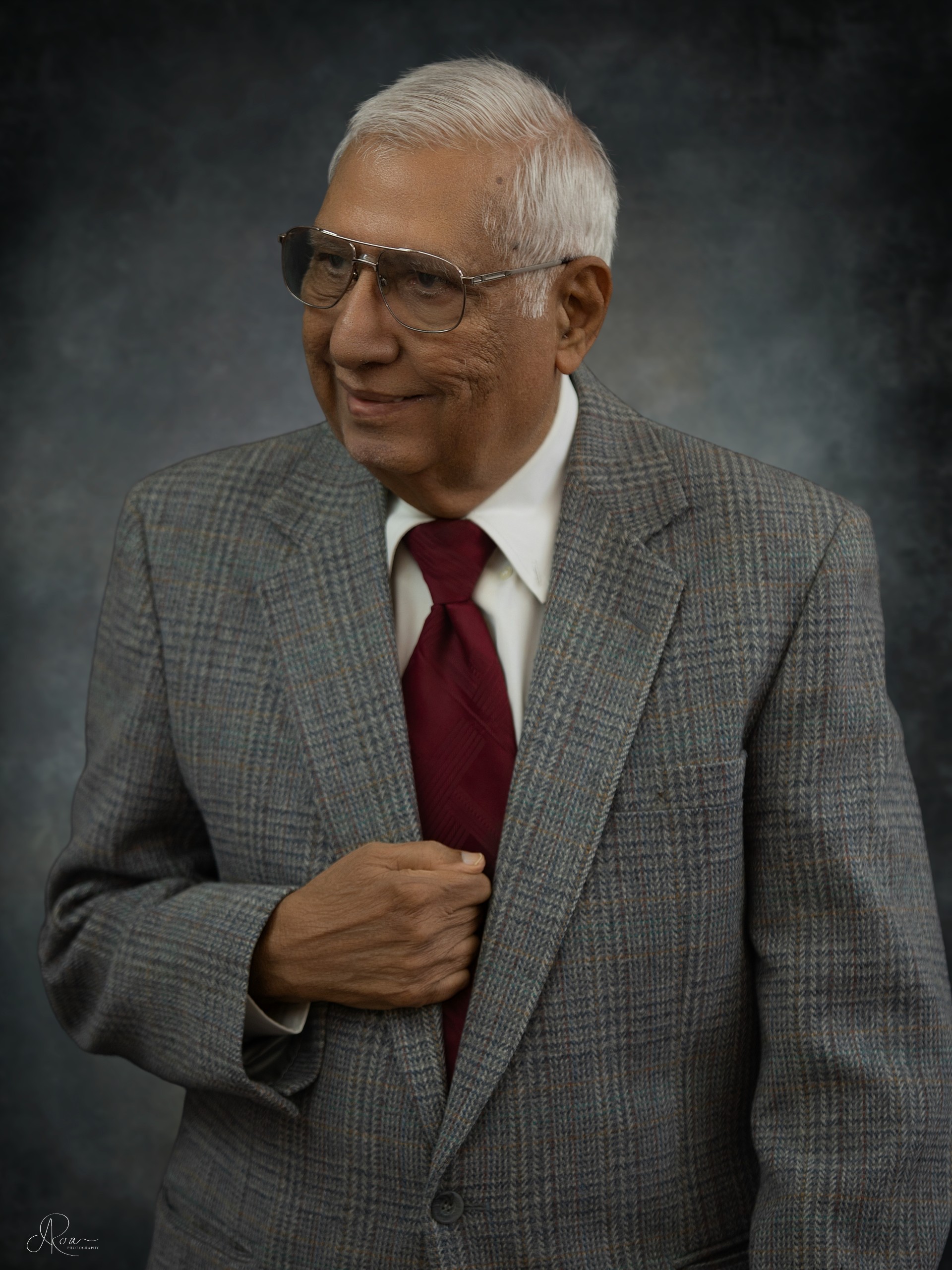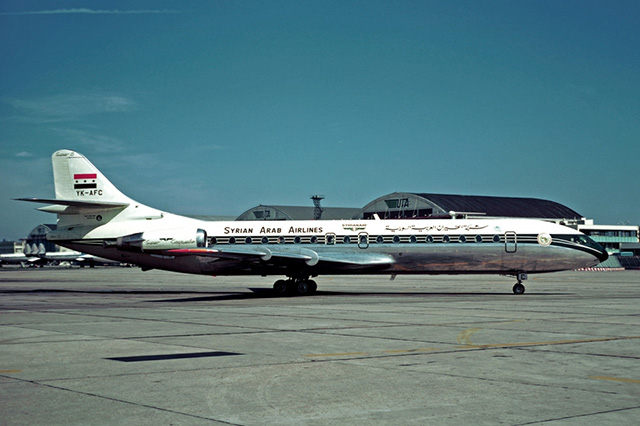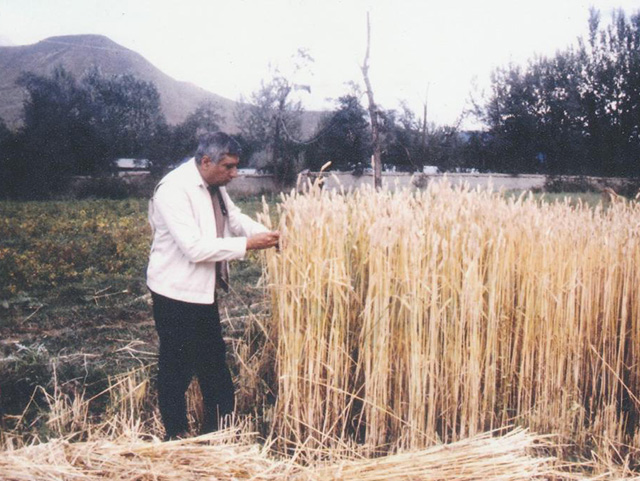
Damania awarded Meyer Medal for conserving grain genetics
Saving the world’s wheat

Ardeshir B. Damania, a research associate in the UC Davis Department of Plant Sciences, has received the Frank N. Meyer Medal for Plant Genetic Resources from the Crop Science Society of America. The award recognizes Damania’s achievements studying wheat, leading crop research and collecting seeds that record the grain’s genetic history.
His work spans 50 years, four continents and a wide swath of agriculture.
During his career, Damania collected crop genetic resources and worked for agricultural organizations in many countries, including Nigeria, Sudan, Somalia, the Seychelles, Mauritius, Syria, Iran, Bhutan, Russia, and Ladakh-Kashmir in India.
“My research is multi-faceted.” Damania said. “I worked on the collection and evaluation of wheat genetic resources, but I also did a lot of research on the origins of agriculture, crop domestication, and the spread of agriculture to other parts of the world.”
Damania also may have saved the world’s collection of wheat from war.
“Seeds have passports??”
Before arriving in Davis, Damania worked for the Consultative Group for International Agricultural Research, better known as CGIAR, an organization working toward food security in developing nations.
In 1991, in the wake of the first Gulf War, Damania was in Syria doing research for a CGIAR research center there, the International Center for Agricultural Research in Dry Areas, or ICARDA. With the war raging just across the border in neighboring Iraq, he personally escorted the center’s collection of wheat seeds and wild relatives out of Syria.
“The world collection could have been threatened, had the war spilled across the border into Syria.” Damania recalled. “As the collection’s curator, I was ordered to take the irreplaceable genebank of the wild wheat species to our sister research station in Mexico for safe-keeping.”
The collection would soon find a new home in CGIAR’s International Maize and Wheat Improvement Center (CIMMYT). But first, Damania had to get it out of Syria. The challenge: No airlines were flying out of the country.
Yet, he managed to find one ghost flight from Aleppo, Syria, to Rome, Italy.
“I was the only passenger on the aircraft besides the crew!” Damania remarked.
Plus 23 boxes of wheat seeds -- the world’s heritage of wheat germplasm.
Taking off from Aleppo, pilots had the Caravelle circle over the city to stay off the Iraqi’s radar. They didn’t want to be mistaken for a military jet, Damania recalled.
“I got a very good look at Aleppo from that height,” he said. “Later when the plane had reached about 20,000 feet, it left straight for Rome.”

The rest of the flight went smoothly, but Italian customs gave a new cause for nail-biting. Officials were suspicious of Damania for traveling with so much cargo but no companions.
Adding to their suspicion, “I had a file marked ‘passport information,’” Damania said. “So they thought that the file contained passport information of some dubious persons.”
So, what’s in all those boxes?
“The Italian customs officer opened one of the vacuum-sealed packs, and an accession of wild wheat emerged, which he thought was dried grass,” Damania recalled.
Damania explained that the passports were for the boxed wheat samples. The officer exclaimed, “What?! Even seeds have passports?”
“He quickly pushed the sample back into its aluminum pouch, and I was cleared to go," Damania recalled.
“Within a couple of hours, the seed boxes were on their way to the CIMMYT,” Damania concluded. “And a great burden of responsibility was lifted from my shoulders!”
Legacy in the Department of Plant Sciences

Damania studied botany, earning a bachelor's and master's degree at the University of Bombay, India. He traveled to England to earn a second master's degree and a Ph.D. at the University of Birmingham, focusing on genetic resources and wheat. He became a scientist with the International Center for Agricultural Research in Dry Areas (ICARDA), staying until 1994.
In that year, Damania came to UC Davis to work as a genetic resources scientist for the University of California Genetic Resources Conservation Program, under director Calvin Qualset. Following Qualset’s retirement, Damania continued with his successor, Patrick McGuire.
The GRCP was a state and UC system-wide initiative that provided small grants to university genetic collections of microbial, plant and animal species. It also coordinated grant-supported research programs and conferences. Damania was a key member of the team as a meeting organizer and book editor. The program ended in 2008.
Damania also has worked closely with Paul Gepts, a distinguished professor emeritus in the Department of Plant Sciences. Gepts, who received the Meyer Medal in 2015, nominated Damania for the award.
“Adi’s work is a textbook example of a career in plant genetic resources conservation in all its diversity, from botanical explorations to evaluations of genetic diversity,” Gepts commented. “I am especially grateful for his contributions to the organization of high-level scientific meetings on the origin and evolution of crops and agriculture.”
Damania joins the department’s legacy of Frank N. Meyer Medal recipients. Along with Gepts, other awardees include:
- Charles Rick, late professor emeritus and founder of the UC Davis Tomato Genetics Resource Center (1982)
- Calvin Qualset, professor emeritus and former director of the UC California Genetic Resources Conservation Program (2006)
- Jorge Dubcovsky, distinguished professor and co-leader of the UC Davis Small Grains Breeding Program (2023)
“Today I am gratified that my hard work in the field and harsh environment of Africa and Syria is finally recognized.” Damania said.
Media Resources
- Grace Fruto has been a student communications assistant for the Department of Plant Sciences for two years. This article concludes her fine work for the department; she graduated in June with a degree in comparative literature.
- Trina Kleist, UC Davis Department of Plant Sciences, tkleist@ucdavis.edu or (530) 601-6846.
